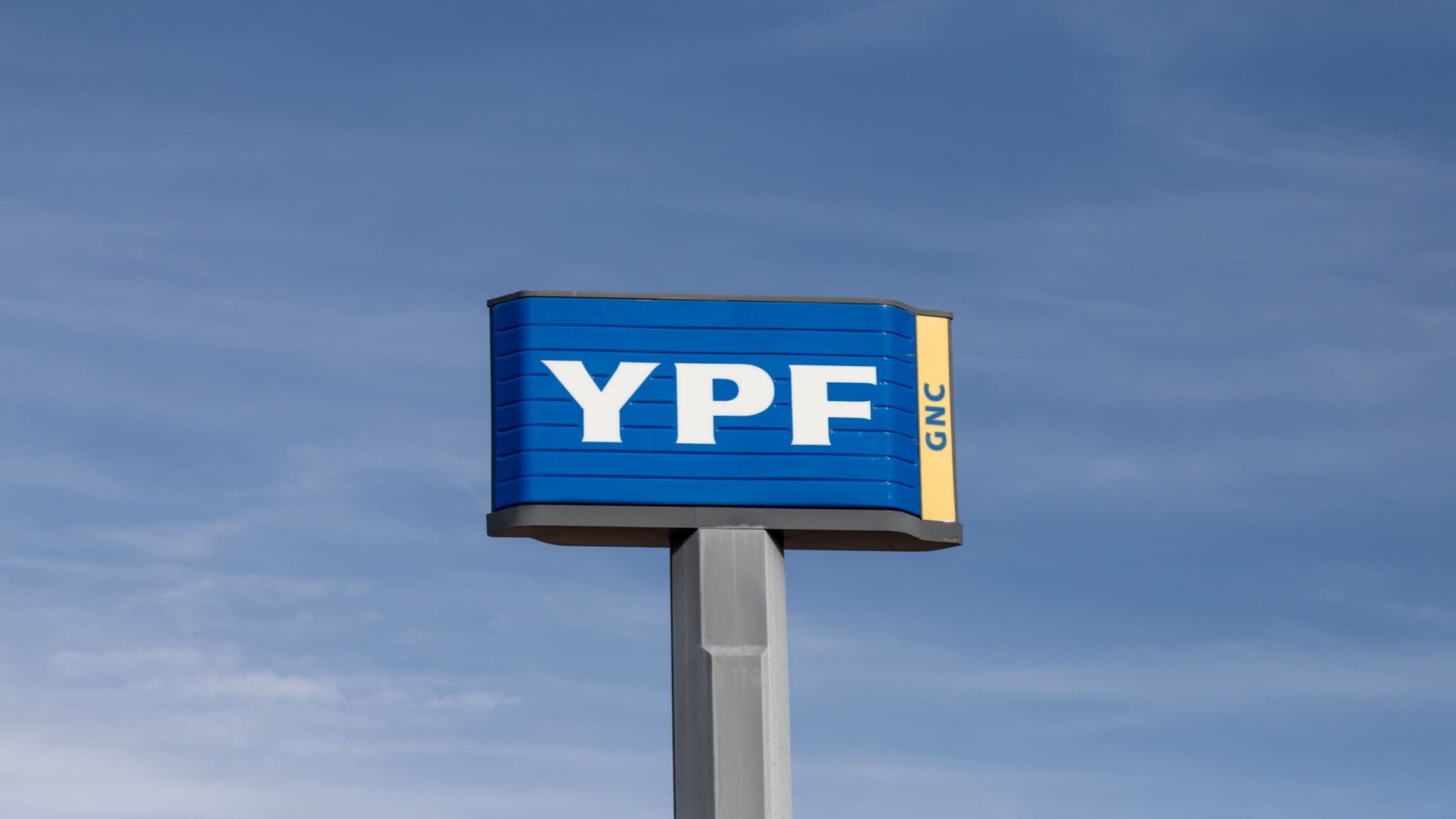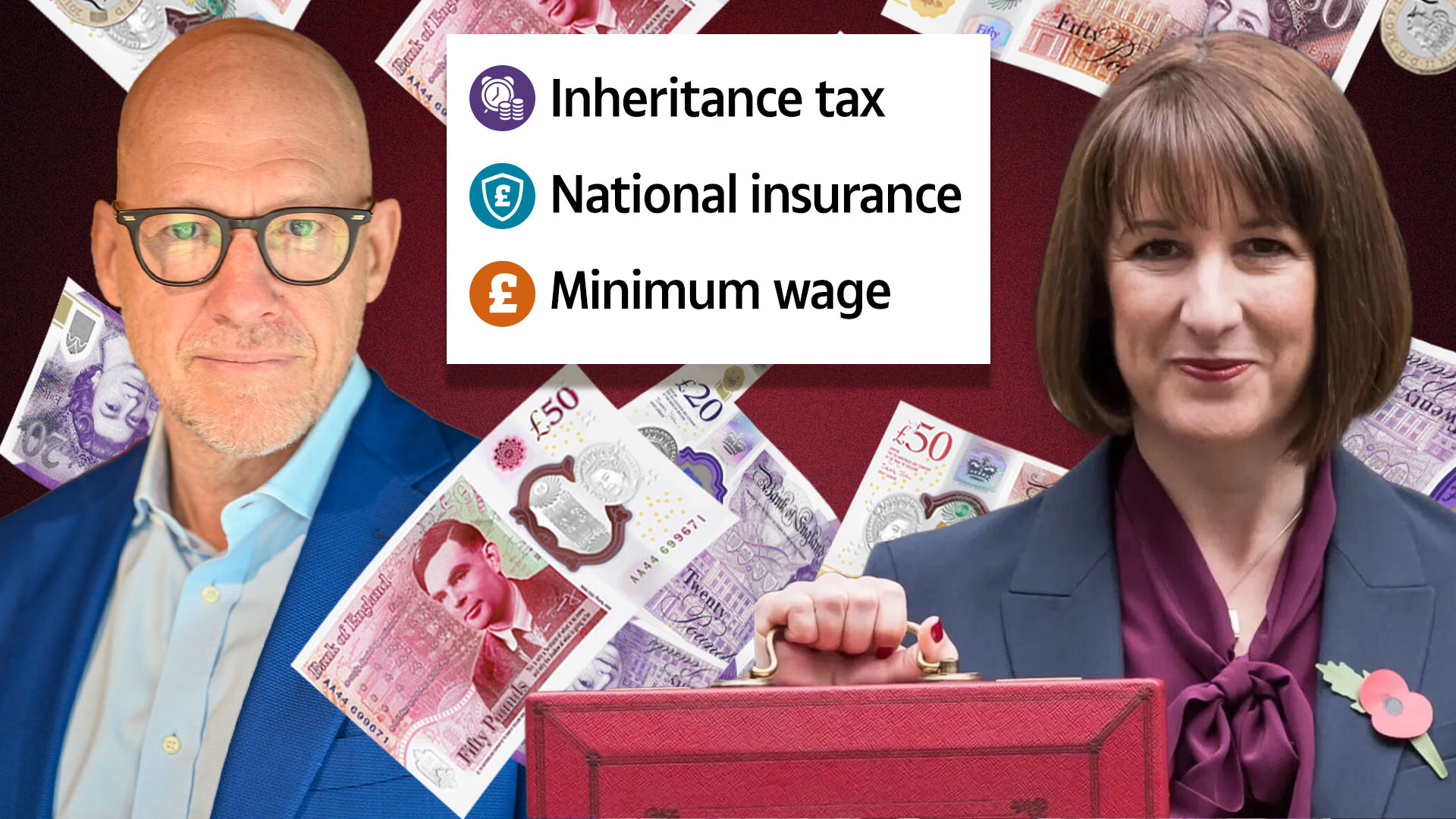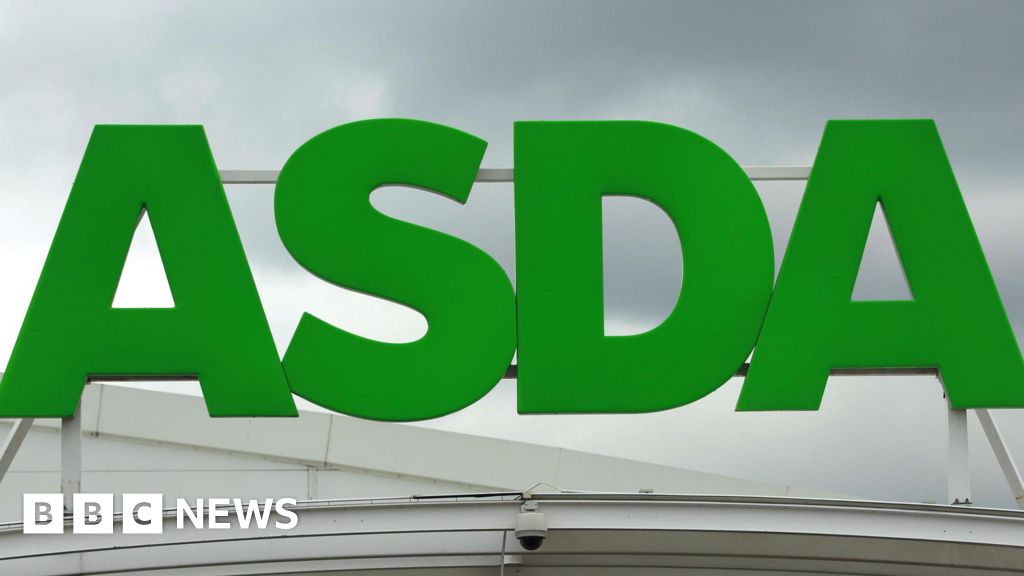Business
Will Trump victory spark global trade war?

Donald Trump vowed on his campaign that he would tax all goods imported into the US if he won back the White House. Following his victory, businesses and economists around the world are scrambling to work out how serious he is.
In the past, Trump has targeted tariffs at individual countries such as China or certain industries, for example steel.
But his election campaign pledge to impose taxes of 10% to 20% on all foreign goods could affect prices all over the world.
Last month, he appeared to single out Europe.
“The European Union sounds so nice, so lovely, right? All the nice European little countries that get together… They don’t take our cars. They don’t take our farm products,” he said.
“They sell millions and millions of cars in the United States. No, no, no, they are going to have to pay a big price.”
BMW, Mercedes and Volkswagen shares all fell between 5% and 7% after Trump’s victory confirmation. The US is the single biggest export market for German carmakers.
During his campaign, Trump said tariffs were the answer to myriad issues, including containing China and preventing illegal immigration.
“Tariff is the most beautiful world in the dictionary,” he said. It is a weapon he clearly intends to use.
While much of this rhetoric and action is aimed at China it does not end there.
Some jurisdictions like the EU are already drawing up lists of pre-emptive retaliatory actions against the US, after ministers did not take seriously enough Trump’s earlier threats of tariffs, which he later imposed.
G7 finance ministers told me last week they would try to remind a Trump-led America of the need for allies in the world economy because “the idea is not to launch a trade war”.
However if “a very strong broad power is used”, Europe would quickly consider its response.
In the past the EU imposed tariffs on iconic American products such as Harley Davidson motorcycles, bourbon whiskey and Levi’s jeans in response to US duties on steel and aluminium.
A top Eurozone central banker told me US tariffs alone were “not inflationary in Europe but it depends on what Europe’s reaction will be”.
Last month the IMF told me a major trade war could hit the world economy by 7%, or the size of the French and German economies combined.
There are very big questions for the UK government about where exactly the post-Brexit UK should seat itself in a plausible, if not certain, transatlantic trade war.
The direction of travel until now for the UK has been to get closer to the EU, including on food and farm standards. This would make a close trade deal with the US very difficult.
The Biden administration was uninterested in such a deal. Trump’s still highly influential top trade negotiator Bob Lighthizer even said an assumption that the UK would stay close to the EU to help its own businesses had prevented him from pursuing a deal.
“They are a much bigger trade partner to you than we are,” he told me in an interview.
The UK could try and remain neutral, but would struggle to avoid the crossfire, especially for the goods trade in pharmaceuticals and cars.
The rhetoric from the UK government suggests it could try to be a peacemaker in global trade wars, but would anyone listen?
Britain could pick a side, by trying to be exempted from more general Trump tariffs.
Diplomats have been heartened by more pragmatic economic advisers to the President-elect suggesting that friendly allies might get a better deal.
Or would the world benefit more if the UK joined forces with the EU to head off the application of such trade tariffs?
Away from the US, what about the example to the rest of the world?
If the world’s biggest economy is resorting to mass protectionism, it’s going to be difficult to persuade many smaller economies not to do the same.
All of this is very much up for grabs. Trump’s warnings can be taken at face value. Nothing is certain, but this is how very serious trade wars can start.
Money
Aldi’s Kevin the Carrot toys RETURN for Christmas including new characters – exact date they hit stores

ALDI’s popular Kevin the Carrot-themed plush toys are set to return to stores for the festive season.
Shoppers will be able to pick up a host of characters from this year’s Christmas ad including Kevin, Katie and the Humbug.
The ad features the popular Kevin character taking on the evil Dr Humbug bent on stealing the Christmas spirit.
Viewers see Kevin sleeping on a dinner plate awoken by a message from Santa tasking him with the rescue mission.
Kevin then enlists the help of his wife Katie using disguises and a case with a “false bottom’” to steal the spirit back from the evil Dr Humbug and her minions in a Mission Impossible-style clip.
Kevin first appeared on the Christmas ad in 2016 and has every year since. You can view this year’s ad in full above.
To mark the new advert, Aldi is unveiling the selection of themed Specialbuys in its middle aisle from next Thursday (November 14).
Customers can snap up Kevin and Katie Plush toys for £3.99 each from the Christmas range.
Meanwhile, the Humbug toy is in stock for the same price while there’s a larger and new My Pal Kevin the Carrot toy, which comes with long arms and legs, on sale for £9.99.
Also in the range are Christmas Tree Plush Decorations for £2.99 based on the Kevin, Katie and Humbug characters.
There are even Kevin and Katie Christmas Pyjamas up for grabs for £5.99 while a Kevin-themed book is selling for £2.99.
It’s worth bearing in mind, Specialbuys are limited edition so when they’re gone, they’re gone.
You can find your nearest Aldi store by using the retailer’s branch locator on its website.
Aldi’s Kevin the Carrot character has surged in popularity since his first unveiling in the retailer’s Christmas ad in 2016.
Themed toys were also released that year, with shoppers rushing to buy them in the years since, including in 2017, 2019, 2021 and last year.
The vegetable-based character has appeared in multiple ads since his first unveiling eight years ago too.
In 2021, he starred alongside footballer Marcus Rashford who appeared as a radish.
In 2019, Kevin hit screens alongside a new character Russell Sprout and a Brummy gang of “Leafy Blinders”.
Following the release of last year’s Christmas ad, shoppers went into a frenzy after Aldi released Kevin the Carrot themed toys, with huge crowds seen queuing up outside their local stores from as early as 4am.
The launch of the Christmas range this year comes after Aldi announced it will shutter all its branches on Boxing Day to give staff time off over the festive period.
It joined a host of others including Poundland, Wilko and The Range and B&Q.
How to save money at Aldi
It’s worth keeping an eye out for any red sticker products, which staff add to items when they’ve been reduced in price.
Aldi tends to add them to items in the morning so it’s best to get in there early if you want to get the best discounts.
Keep an eye out for slashed-price fruits and vegetables as well – the retailer tends to reduce six items every two weeks to “silly low” prices, according to deals expert Tom Church.
Get ahead of the crowd by signing up to Aldi’s newsletter and following the retailer on social media as well.
It often announces upcoming deals via the two channels so you can snap up the best prices before anyone else.
And of course, take advantage of Aldi’s cheap alcohol which could save you some cash compared to going with branded versions.
When’s the best time to shop at Aldi?
WHEN it comes to shopping at Aldi, the best time to do so depends on what you want to buy.
For reduced items – when shops open
Red sticker items are rare at Aldi’s 830 UK stores, but the supermarket says that none of its food goes to waste so there are some to be found – if you’re quick.
A spokesman for the supermarket said: “All items are reduced to 50 per cent of the recommend sales price before stores open on their best before or use by dates.”
That means you have the best chance of finding reduced food items if you go into stores as soon as it opens.
Opening times vary by shop but a majority open from 7am or 8am. You can find your nearest store’s times by using the supermarket’s online shop finder tool.
For Specialbuys – Thursdays and Sundays
Specialbuys are Aldi’s weekly collection of items that it doesn’t normally sell, which can range from pizza ovens to power tools.
New stock comes into stores every Thursday and Sunday, so naturally, these are the best days to visit for the best one-off special deals.
For an even better chance of bagging the best items, head there for your local store’s opening time.
Remember: once they’re gone, they’re gone, so if there’s something you really want, visit as early as possible
Do you have a money problem that needs sorting? Get in touch by emailing money-sm@news.co.uk.
Plus, you can join our Sun Money Chats and Tips Facebook group to share your tips and stories
Business
US backs Argentina’s fight against asset seizures in $16bn court case

Letter says that allowing claimants to take over Buenos Aires’s stake in energy company YPF would implicate ‘important foreign policy interests’
Money
I grew up in a council house and now run a £1.3bn business – why Labour’s Budget is an absolute disaster

ENTREPRENEUR Ryan Howsam, who grew up in a council house and now runs a £1.3billion business, has slammed Labour’s Budget as an ‘absolute disaster’ for small firms.
In an exclusive interview with The Sun, the insurance boss warned that Labour’s recent Budget will kill family businesses and force firms to cut wages.
The founder and chairman of insurer Staysure blasted changes to inheritance tax, National Insurance and minimum wage.
Mr Howsam set up his first business at 19 and is now the chief executive of a major, family-run insurance company which employs over 700 people.
Family-run businesses form around 86% of the UK’s private sector, according to the Family Business Research Foundation, most of which are considered “small to medium” businesses (SMEs).
But several changes announced in the Budget last week were targeted at increasing costs for those firms, which Mr Howsam says will see more firms close and a loss of opportunities for everyone.
For example, he said the government’s increase to the Living and Minimum Wages by 6.7% and 16%, respectively, as well as employers’ National Insurance will mean firms have to cut wage growth.
Meanwhile, he said the changes to bring family business assets into the scope of inheritance tax (IHT) will force more family businesses to close, or their families will have to sell them at a reduced price to pay the tax bill.
“I don’t really think [the Budget] served lower-income households very well, as minimum wage growth and the National Insurance increase will hit businesses’ ability to grow, and that will ultimately mean there’s less wage growth and less opportunity,” he explained.
“And the changes to inheritance tax are an absolute disaster.
“I come from a council house background, so I’m as working class as you get and I understand people having less disposable income.
“But this narrative that Labour has got that we should hammer anybody who has got money and wants to succeed is like biting the hand that feeds you. Why would you do that?
“These are the people bringing the cash in and paying the majority of our tax.”
‘Changes to IHT will kill family businesses’
Changes to bring family businesses into the scope of inheritance tax (IHT) will mean families having to pay 20% tax on assets over £1million.
Previously, family businesses were exempt from IHT if left to a loved one.
But now this exemption will only apply to the first £1million of assets in the businesses, which Mr Howsam says means families will have to sell their busniess at a reduced price to pay the remaining tax bill.
“Most family businesses are not quoted on the stock market, which means HMRC will have to put an arbitrary value on them, and then the family has just got to come up with that money,” he explained.
“If you take a business valued at £4million, that business might only have £100,000 in the bank, but 20% of £4million (without business relief on the first £1million) is £800,000. Where are the family going to get £800,000 from, plus interest?
“They won’t – the only way the money will come in is it they sell the business for a lot less than it’s worth because they are desperate.
“So, these families have worked their whole lives, but they will be forced to sell the business or try to come up with an awful lot of money. It’s a really stupid move.”
‘Targeting the wealthy will mean more tax for everyone’
Mr Howsam added that targeting wealth and businesses will ultimately end up increasing taxes for everyone if those people decide to leave the UK.
“Around 4,500 millionaires left the country last year, and this year it’s forecast to be 9,500 millionaires,” he said.
“You may think that doesn’t matter, but it does matter, because the top 1% of taxpayers pay 28% of HMRC‘s tax take – and then there’s the money they spend, which puts their tax take up to 36%.
“If those people leave, who do you think is going to have to pay more? The country is just getting less well off as a result.”
The government’s plan to also include pensions in the scope of IHT will also mean far more people end up paying the death tax, he said.
Currently, only around 4% of families pay IHT, but Mr Howsam says the changes in the Budget will trickle down and start hitting mid-to-low income families.
“IHT is going to hit middle income people in a big way, and then it’s going to start coming down towards lower-income people too, if they have a bigger pension pot,” he said.
Other announcements in the Budget
In the Budget last week, Labour announced a raft of measures to fill a £22billion “black hole” in the country’s finances allegedly left by the previous government.
A few of those measures included the changes to IHT, a crackdown on benefit fraud, a hike in tobacco duty and a stamp duty increase on second homes.
However, there was some good news for savers in the Budget.
Benefits like Universal Credit and Attendance Allowance will rise by 1.7% in line with September’s inflation figure. Ms Reeves also confirmed the state pension will rise by up to £473 next year.
The minimum wage is also set to rise for workers aged 21 and over by 6.7% from next April from £11.44 to £12.21.
We have rounded up legal ways to avoid inheritance tax here.
WHAT ELSE IS HIDDEN IN THE SMALL PRINT?
WE scoured the Budget documents to find these announcements hidden in the small print . . .
CHILD BENEFIT REFORM AXED
THE reform to base Child Benefit on total household income will not be going ahead.
Under current rules, two parents earning £59,000 a year – £118,000 in total – receive the benefit in full.
But a household could have a lot less in total income and not get the full payment if one of the parents earns over £60,000. This will now remain the case.
‘HELP TO SAVE’ EXTENDED
THE Government will extend the current Help To Save until April 5, 2027.
The scheme, where those on low incomes and Universal Credit can get a cash bonus of £1,200 over four years, was due to end in 2025.
‘MORTGAGE GUARANTEE’ PERMANENT
BUYERS can get a 95 per cent loan-to-value mortgage through the mortgage guarantee scheme which is now being made permanent.
The scheme had been set to end next year.
SELF-ASSESSMENT SHAKE-UP
A BUMPER £16million will be invested to modernise the HMRC’s app so self-assessment taxpayers can make voluntary advance payments on their tax bill in instalments.
STAMP DUTY RELIEF
FOR first-time buyers, Stamp Duty will rise from April – but you have five months to make a purchase and beat the increase.
An independent mortgage broker can help you work out how much you can borrow to set your budget.
Business
Asda to cut 475 jobs and reduce hybrid working

Asda has confirmed 475 roles at their head offices in Leeds and Leicestershire will be cut and hybrid working reduced as part of a business restructure.
The retailer said the move, which would affect less than 10% of its head office staff, would enable it to “simplify structures” amid a challenging market.
In a note to employees on Tuesday, the company’s chairman Lord Rose said office attendance would also become compulsory for at least three days per week from January.
It comes after the company reported a 2.2% decline in total revenues excluding fuel, to £5.3bn from April to June 2024.
A spokesperson for the firm said: “The changes which are being communicated today will result in 475 colleagues being made redundant at our head offices in Leeds and Leicestershire.
“In addition, fixed-term contractors who are working on our IT transformation project will also leave over the course of the next few months as this project finishes.”
From January 2025, employees would also be required to be present in an Asda office location for a minimum of three days per week.
Lord Rose said the changes were needed to “ensure that the business was best placed to meet our long-term ambitions”.
“As part of this process, we are redefining roles and accountabilities to remove duplication and simplify structures,” he said.
Asda was bought in 2020 from Walmart by billionaire brothers Zuber and Mohsin Issa in a £6.8bn deal with the backing of equity firm TDR Capital.
Last week, Asda announced TDR Capital had acquired the shares of Zuber Issa, who subsequently stepped down from his non-executive role on Asda’s board.
This brings the ownership of Asda by TDR Capital to 67.5%.
Mohsin Issa, who stepped back from his executive leadership role in September, owns 22.5 %, while 10% is still held by Walmart.
Listen to highlights from West Yorkshire on BBC Sounds, catch up with the latest episode of Look North or tell us a story you think we should be covering here.
Travel
The Radisson Hotel, Dublin Airport to become Clayton property
Dalata Hotel Group has acquired the 229-room property for €83 million
Money
Major high street bank to launch new buy now, pay later product next year to rival Klarna and PayPal

A MAJOR bank is gearing up to launch a brand new “buy now, pay later” product to rival the likes of Klarna, ClearPay and PayPal.
Lloyds Bank is creating its own “split payments” option that will allow its customers to spread the cost of items and services bought online over time, The Sun understands.
The product will be fully regulated by the Financial Conduct Authority (FCA), which most buy now, pay later (BNPL) products currently aren’t, but will be by 2026 under plans by the government.
It is understood the product will be an entirely new and independent payment option that will appear at checkouts like Klarna or ClearPay and won’t be linked to existing products like credit cards.
In some cases, it may be offered as an exclusive split payment option for its 27million customers, while at other merchants it will appear alongside other similar payment options.
Lloyds will also launch a dedicated mobile app for the product where users will be able to see all of their instalment plans in one place.
More on buy now, pay later
While Lloyds could not confirm exact timings, it is understood the product could be available from as early as next year.
It will only be available with a small number of merchants initially and will then roll out more widely, with the long-term goal being to “show up at the end of millions of online purchase journeys”.
The focus will be on targeting merchants that offer goods and services where it makes sense to spread payments.
It is not currently known whether the product will charge any extra fees or what the interest rate will be, but Lloyds said it will update The Sun when it has more details to share.
Lloyds is creating the product following feedback from customers that they wanted more payment options when buying online.
Lloyds has also reported seeing an increase in customers choosing to spread their payments over time, which has led to it wanting to create its own offering.
It is understood that the bank is currently recruiting extra staff internally to help with the rollout of the product, and is working with New Day, the firm behind the John Lewis Partnership Card.
The plans follow the launch of US BNPL brand Affirm in the uK earlier this week. It will let users pay in instalments such as six, nine or 12 months and will not charge any extra fees.
They also come after a recent announcement from the government to pass legislation to regulate the buy now, pay later (BNPL) sector by early next year, with regulation in place by 2026, as revealed exclusively by The Sun.
The new rules will mean BNPL users will get extra protections when using the products, including Section 75 protection and the ability to complain to the Financial Ombudsman if things go wrong.
It’s important to make sure you can afford to meet any payments before taking out an instalment plan to avoid damaging your credit score or ending up with any late fees.
The history of banks and BNPL products
Lloyds Bank is not the first lender to venture into the BNPL space.
Rival high street bank NatWest has previously had its own BNPL product, which was available for its 18million customers – although was used by far fewer.
NatWest launched the product, which allowed customers to spread purchases over four interest-free monthly instalments, to much fanfare in summer 2022, saying it had seen “clear demand” for BNPL.
But the bank axed the product on May 7 last year after seeing far lower take-up than expected.
Credit card provider American Express also launched its own BNPL option, “Plan It”, in February this year.
The option allows customers to spread payments over three, six or 12 months interest-free with a fixed monthly fee.
Usually with a credit card you pay off the full balance each month at no extra cost, or make the minimum repayment and pay interest. But Plan It means they can extend the interest-free period for a small fee.
For example, repaying £1,000 over six months would come with a £10.70 monthly fee – so £64.20 overall – while borrowing with 30% interest would cost £95.79 per month.
Credit card need-to-knows

Not using a credit card effectively can wreak havoc on your finances and your credit score.
If you don’t keep up with repayments or default on your debt, you are likely to get a black mark on your credit record, which could affect your ability to get a credit card, loan or mortgage in the future.
It’s important not to let yourself get sucked into overspending.
You should always clear the full balance as soon as possible.
If you have a poor credit score, don’t bank on being approved for a card or getting the 0% deal you’d hoped for.
Card providers only have to give the advertised rate to 51% of applicants, so you could end up paying more interest than you bargained for.
If you’ve got a poor credit record, you’re less likely to get the best rates.
And if you are looking for a new credit card, don’t apply for lots at once.
After your 0% period is up, lenders can charge upwards of 40% interest, so if you have not repaid the debt fully by then, try to move the debt onto another 0% deal.
What are the BNPL regulation changes?
The Labour government confirmed last month that it intends to legislate to bring BNPL products under the FCA’s rule by early 2025, which would mean regulation would kick in by 2026.
Plans to regulate these products have been repeatedly delayed, which is bad news for shoppers as no regulation means customers aren’t protected if things go wrong.
Under the plans, firms will have to be clear and transparent about late fees and how they could impact customers’ credit ratings.
Affordability checks will also be strengthened and shoppers who feel they’ve been treated unfairly will be able to complain to the Financial Ombudsman Service (FOS), which resolves disputes with financial firms.
These products will also be subject to the Consumer Credit Act and Section 75, so shoppers will be able to complain if products are falsely advertised and can get their money back if items are faulty.
Some split payment products are already regulated. For example, Zilch, which is considered a BNPL firm, is already under FCA regulation.
Do you have a money problem that needs sorting? Get in touch by emailing squeezeteam@thesun.co.uk
-

 Science & Environment2 months ago
Science & Environment2 months agoHow to unsnarl a tangle of threads, according to physics
-

 Technology1 month ago
Technology1 month agoIs sharing your smartphone PIN part of a healthy relationship?
-

 Science & Environment2 months ago
Science & Environment2 months agoHyperelastic gel is one of the stretchiest materials known to science
-

 Science & Environment2 months ago
Science & Environment2 months ago‘Running of the bulls’ festival crowds move like charged particles
-

 Technology2 months ago
Technology2 months agoWould-be reality TV contestants ‘not looking real’
-

 Science & Environment1 month ago
Science & Environment1 month agoX-rays reveal half-billion-year-old insect ancestor
-

 Science & Environment2 months ago
Science & Environment2 months agoMaxwell’s demon charges quantum batteries inside of a quantum computer
-

 Money1 month ago
Money1 month agoWetherspoons issues update on closures – see the full list of five still at risk and 26 gone for good
-

 Sport1 month ago
Sport1 month agoAaron Ramsdale: Southampton goalkeeper left Arsenal for more game time
-

 Science & Environment2 months ago
Science & Environment2 months agoPhysicists have worked out how to melt any material
-

 Science & Environment2 months ago
Science & Environment2 months agoSunlight-trapping device can generate temperatures over 1000°C
-

 News1 month ago
News1 month agoWoman who died of cancer ‘was misdiagnosed on phone call with GP’
-

 Football1 month ago
Football1 month agoRangers & Celtic ready for first SWPL derby showdown
-

 MMA1 month ago
MMA1 month ago‘Dirt decision’: Conor McGregor, pros react to Jose Aldo’s razor-thin loss at UFC 307
-

 Technology1 month ago
Technology1 month agoGmail gets redesigned summary cards with more data & features
-

 Technology1 month ago
Technology1 month agoUkraine is using AI to manage the removal of Russian landmines
-
Business1 month ago
how UniCredit built its Commerzbank stake
-

 Science & Environment2 months ago
Science & Environment2 months agoLaser helps turn an electron into a coil of mass and charge
-

 Science & Environment2 months ago
Science & Environment2 months agoA new kind of experiment at the Large Hadron Collider could unravel quantum reality
-

 News1 month ago
News1 month ago‘Blacks for Trump’ and Pennsylvania progressives play for undecided voters
-

 Sport1 month ago
Sport1 month agoBoxing: World champion Nick Ball set for Liverpool homecoming against Ronny Rios
-

 Technology1 month ago
Technology1 month agoEpic Games CEO Tim Sweeney renews blast at ‘gatekeeper’ platform owners
-

 Science & Environment2 months ago
Science & Environment2 months agoLiquid crystals could improve quantum communication devices
-

 Technology1 month ago
Technology1 month agoRussia is building ground-based kamikaze robots out of old hoverboards
-

 Technology1 month ago
Technology1 month agoSamsung Passkeys will work with Samsung’s smart home devices
-

 Science & Environment2 months ago
Science & Environment2 months agoQuantum ‘supersolid’ matter stirred using magnets
-

 Science & Environment2 months ago
Science & Environment2 months agoWhy this is a golden age for life to thrive across the universe
-

 MMA1 month ago
MMA1 month agoDana White’s Contender Series 74 recap, analysis, winner grades
-

 Sport1 month ago
Sport1 month ago2024 ICC Women’s T20 World Cup: Pakistan beat Sri Lanka
-

 Entertainment1 month ago
Entertainment1 month agoBruce Springsteen endorses Harris, calls Trump “most dangerous candidate for president in my lifetime”
-

 Technology1 month ago
Technology1 month agoMicrosoft just dropped Drasi, and it could change how we handle big data
-

 News1 month ago
News1 month agoMassive blasts in Beirut after renewed Israeli air strikes
-

 News1 month ago
News1 month agoNavigating the News Void: Opportunities for Revitalization
-

 MMA1 month ago
MMA1 month ago‘Uncrowned queen’ Kayla Harrison tastes blood, wants UFC title run
-

 MMA1 month ago
MMA1 month agoPereira vs. Rountree prediction: Champ chases legend status
-

 Technology1 month ago
Technology1 month agoCheck, Remote, and Gusto discuss the future of work at Disrupt 2024
-

 News1 month ago
News1 month agoRwanda restricts funeral sizes following outbreak
-

 Technology1 month ago
Technology1 month agoMicrophone made of atom-thick graphene could be used in smartphones
-
Business1 month ago
Top shale boss says US ‘unusually vulnerable’ to Middle East oil shock
-

 TV1 month ago
TV1 month agoসারাদেশে দিনব্যাপী বৃষ্টির পূর্বাভাস; সমুদ্রবন্দরে ৩ নম্বর সংকেত | Weather Today | Jamuna TV
-

 Business1 month ago
Business1 month agoWhen to tip and when not to tip
-

 Sport1 month ago
Sport1 month agoWXV1: Canada 21-8 Ireland – Hosts make it two wins from two
-

 Science & Environment2 months ago
Science & Environment2 months agoQuantum forces used to automatically assemble tiny device
-

 Technology1 month ago
Technology1 month agoWhy Machines Learn: A clever primer makes sense of what makes AI possible
-

 Business1 month ago
Business1 month agoWater companies ‘failing to address customers’ concerns’
-

 News1 month ago
News1 month agoCornell is about to deport a student over Palestine activism
-

 Technology1 month ago
Technology1 month agoSingleStore’s BryteFlow acquisition targets data integration
-

 News1 month ago
News1 month agoHull KR 10-8 Warrington Wolves – Robins reach first Super League Grand Final
-

 Science & Environment2 months ago
Science & Environment2 months agoITER: Is the world’s biggest fusion experiment dead after new delay to 2035?
-

 Technology2 months ago
Technology2 months agoMeta has a major opportunity to win the AI hardware race
-

 Science & Environment2 months ago
Science & Environment2 months agoA slight curve helps rocks make the biggest splash
-

 News2 months ago
News2 months ago▶️ Hamas in the West Bank: Rising Support and Deadly Attacks You Might Not Know About
-

 MMA1 month ago
MMA1 month agoKayla Harrison gets involved in nasty war of words with Julianna Pena and Ketlen Vieira
-

 Football1 month ago
Football1 month ago'Rangers outclassed and outplayed as Hearts stop rot'
-

 Science & Environment2 months ago
Science & Environment2 months agoNuclear fusion experiment overcomes two key operating hurdles
-

 Sport1 month ago
Sport1 month agoChina Open: Carlos Alcaraz recovers to beat Jannik Sinner in dramatic final
-

 Football1 month ago
Football1 month agoWhy does Prince William support Aston Villa?
-

 MMA1 month ago
MMA1 month agoPennington vs. Peña pick: Can ex-champ recapture title?
-

 Sport1 month ago
Sport1 month agoPremiership Women’s Rugby: Exeter Chiefs boss unhappy with WXV clash
-

 Technology1 month ago
Technology1 month agoLG C4 OLED smart TVs hit record-low prices ahead of Prime Day
-

 News1 month ago
News1 month ago▶ Hamas Spent $1B on Tunnels Instead of Investing in a Future for Gaza’s People
-

 Sport1 month ago
Sport1 month agoShanghai Masters: Jannik Sinner and Carlos Alcaraz win openers
-

 Technology1 month ago
Technology1 month agoMusk faces SEC questions over X takeover
-

 Sport1 month ago
Sport1 month agoCoco Gauff stages superb comeback to reach China Open final
-

 Money4 weeks ago
Money4 weeks agoTiny clue on edge of £1 coin that makes it worth 2500 times its face value – do you have one lurking in your change?
-

 Womens Workouts1 month ago
Womens Workouts1 month ago3 Day Full Body Women’s Dumbbell Only Workout
-

 Technology1 month ago
Technology1 month agoUniversity examiners fail to spot ChatGPT answers in real-world test
-
Business1 month ago
Bank of England warns of ‘future stress’ from hedge fund bets against US Treasuries
-

 Sport1 month ago
Sport1 month agoSturm Graz: How Austrians ended Red Bull’s title dominance
-

 MMA1 month ago
MMA1 month ago‘I was fighting on automatic pilot’ at UFC 306
-
Travel1 month ago
World of Hyatt welcomes iconic lifestyle brand in latest partnership
-

 News1 month ago
News1 month agoGerman Car Company Declares Bankruptcy – 200 Employees Lose Their Jobs
-

 Sport1 month ago
Sport1 month agoWales fall to second loss of WXV against Italy
-

 Science & Environment2 months ago
Science & Environment2 months agoTime travel sci-fi novel is a rip-roaringly good thought experiment
-

 Science & Environment2 months ago
Science & Environment2 months agoNerve fibres in the brain could generate quantum entanglement
-
Business1 month ago
DoJ accuses Donald Trump of ‘private criminal effort’ to overturn 2020 election
-
Business1 month ago
Sterling slides after Bailey says BoE could be ‘a bit more aggressive’ on rates
-

 TV1 month ago
TV1 month agoTV Patrol Express September 26, 2024
-

 Sport1 month ago
Sport1 month agoURC: Munster 23-0 Ospreys – hosts enjoy second win of season
-

 MMA1 month ago
MMA1 month agoHow to watch Salt Lake City title fights, lineup, odds, more
-

 Technology1 month ago
Technology1 month agoJ.B. Hunt and UP.Labs launch venture lab to build logistics startups
-

 Technology1 month ago
Technology1 month agoAmazon’s Ring just doubled the price of its alarm monitoring service for grandfathered customers
-

 Technology1 month ago
Technology1 month agoQuoroom acquires Investory to scale up its capital-raising platform for startups
-
Business1 month ago
Italy seeks to raise more windfall taxes from companies
-

 MMA1 month ago
MMA1 month agoKetlen Vieira vs. Kayla Harrison pick, start time, odds: UFC 307
-

 Technology1 month ago
Technology1 month agoThe best shows on Max (formerly HBO Max) right now
-

 Technology1 month ago
Technology1 month agoIf you’ve ever considered smart glasses, this Amazon deal is for you
-

 Sport1 month ago
Sport1 month agoNew Zealand v England in WXV: Black Ferns not ‘invincible’ before game
-

 Science & Environment2 months ago
Science & Environment2 months agoHow to wrap your mind around the real multiverse
-

 News2 months ago
News2 months ago▶️ Media Bias: How They Spin Attack on Hezbollah and Ignore the Reality
-
Business1 month ago
‘Let’s be more normal’ — and rival Tory strategies
-
Business1 month ago
The search for Japan’s ‘lost’ art
-

 News1 month ago
News1 month agoTrump returns to Pennsylvania for rally at site of assassination attempt
-

 MMA1 month ago
MMA1 month agoKevin Holland suffers injury vs. Roman Dolidze
-

 Sport1 month ago
Sport1 month agoMan City ask for Premier League season to be DELAYED as Pep Guardiola escalates fixture pile-up row
-

 MMA1 month ago
MMA1 month agoUFC 307’s Ketlen Vieira says Kayla Harrison ‘has not proven herself’
-

 Technology4 weeks ago
Technology4 weeks agoThe FBI secretly created an Ethereum token to investigate crypto fraud
-

 Business1 month ago
Business1 month agoStocks Tumble in Japan After Party’s Election of New Prime Minister
-

 Technology1 month ago
Technology1 month agoTexas is suing TikTok for allegedly violating its new child privacy law
-

 Technology1 month ago
Technology1 month agoOpenAI secured more billions, but there’s still capital left for other startups










You must be logged in to post a comment Login